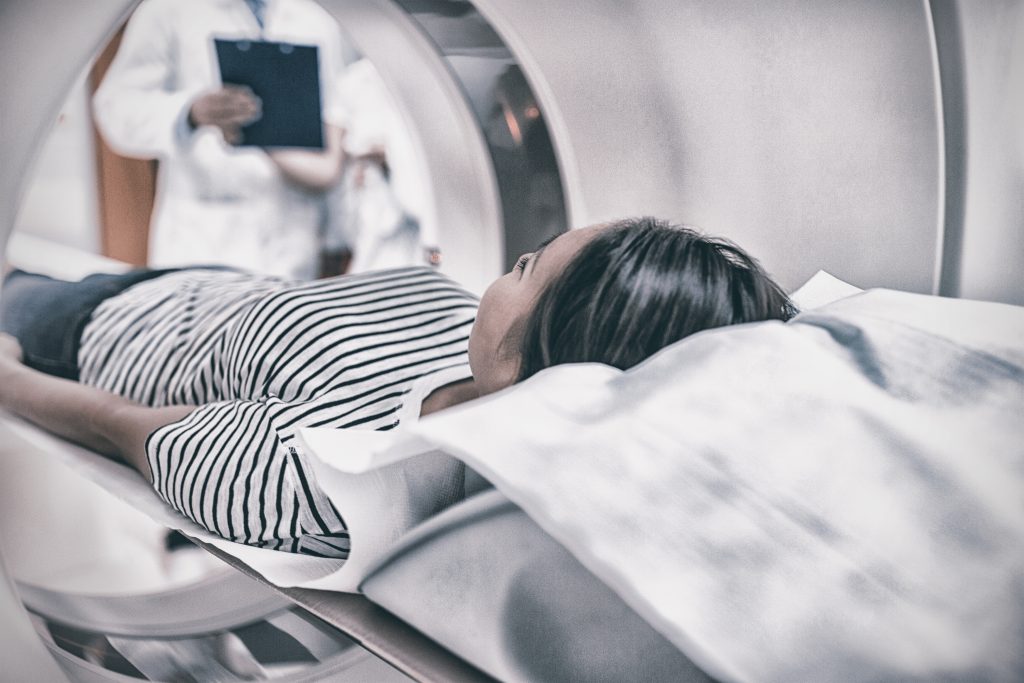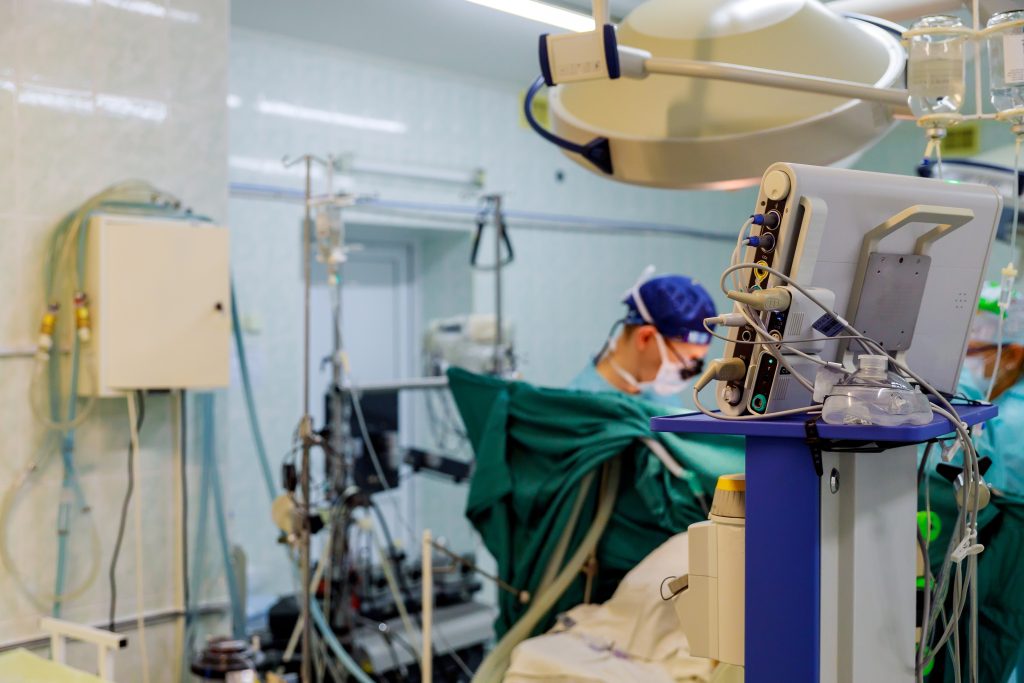Mitral Valve Repair or Replacement
Mitral valve repair surgery is beneficial for individuals suffering from mitral valve disease, as it greatly improves their lifespan and overall well-being. This surgical procedure becomes necessary when the mitral valve is severely deformed, either causing excessive leakage or constriction. Failure to address these issues can gradually weaken the heart and potentially lead to a fatal outcome. It is essential to consult with your healthcare provider to determine the most suitable treatment approach for your specific condition.

What is the mitral valve, and where is it located?
The mitral valve can be found within the heart, positioned between the left atrium and left ventricle. It is made up of two leaflets of tissue. Its main function is to facilitate the movement of blood from the lungs into the left atrium and then into the left ventricle.
After the blood reaches the left ventricle, it is then pushed to the aorta, which circulates blood to all parts of the body. During the heart’s contraction, the two sections of the mitral valve quickly close, ensuring that blood doesn’t flow backward.
Why it’s done
If you are diagnosed with mitral valve disease, such as a damaged or malfunctioning mitral valve, it may be necessary for you to undergo surgery or a different medical procedure in order to repair or replace the affected valve.
- Mitral valve regurgitation occurs when the flaps of the mitral valve fail to close properly, resulting in the backward flow of blood. This condition is often found in individuals with mitral valve prolapse. In the case of severe symptoms, mitral valve repair surgery is strongly advised.
- In cases of mitral valve stenosis, the leaflets of the valve become thick or rigid and may even merge, resulting in a narrowing of the valve and a decrease in the passage of blood through that particular area.
Testing for Mitral Valve Disease to Determine Diagnosis
Once your Rehabturk specialist has gathered your medical history and completed a physical examination, they may suggest conducting specific tests to confirm a diagnosis of mitral valve disease.
Doctors use the following tests to aid in diagnosing mitral valve disease and deciding on the most suitable treatment strategy.
Echocardiogram
An ultrasound test known as an echocardiogram is used to create pictures of the heart’s chambers and valves using sound waves. To capture these images, a gel is applied to the chest and a handheld device called a transducer is utilized by the technician.
Occasionally, a transesophageal echocardiogram may be conducted to obtain more defined heart images. During this process, a probe that uses ultrasound technology is inserted via the mouth and into the esophagus, a passage responsible for transporting food and liquid to the stomach. Sedation and a local anesthetic for the throat are administered to ensure comfort during the procedure.
The echocardiogram continues to be the preferred method of imaging for determining and measuring heart valve issues.
Cardiac CT Scan

Your physician may determine that a cardiac CT scan is necessary. This procedure utilizes advanced X-ray technology to generate detailed images of your heart in multiple sections. These images aid in the comprehension of the underlying reasons behind your symptoms and often provide enough information for your doctor to examine your arteries, potentially eliminating the need for further tests.
Rehabturk employs advanced CT scan technology that is both efficient and secure. Our dual-source CT scanner produces clear and detailed diagnostic images while minimizing radiation exposure. Additionally, we implement a special protocol that reduces the required amount of contrast dye, benefiting the health of your kidneys.
Cardiac Catheterization
Cardiac catheterization assists the doctor in measuring the blood flow and pressure on both sides of the mitral valve, making it possible to identify any issues with the valve’s ability to regulate blood flow through the heart. It is also utilized to identify any blockages of arteries within the heart.
Doctors use a catheter, which is a long, thin, hollow tube, to perform the test. The catheter is inserted into a blood vessel in the arm, neck, or groin, and X-ray images are utilized to help guide the catheter towards the heart.
The process is carried out at the hospital and necessitates the use of local anesthesia and sedatives.
Who Is a Candidate for Mitral Valve Surgery?
The qualifications for mitral valve surgery are determined by various factors, such as the extent of the mitral valve condition and the overall state of your heart. These criteria can differ significantly among individuals.
Patients who meet the following criteria may be suitable for valve repair or replacement:
- Individuals who have been diagnosed with mitral valve disease, such as regurgitation, prolapse, or stenosis.
- Are they exhibiting obvious symptoms of their condition?
- Do not smoke
- Individuals who have a body mass index (BMI) exceeding 30 are considered clinically obese and should avoid being in this category.
- Have no previous medical records of heart conditions like coronary artery disease (CAD) and aortic valve disease.
How can I prepare for mitral valve repair surgery?
Prior to the operation, the doctor will conduct a comprehensive physical examination, analyze your medical history, and conduct blood tests to assess your overall fitness for the surgery. Additionally, the doctor will provide you with detailed information about the procedure, its potential risks, and the expected recovery process. As a precaution, you may be advised to refrain from eating or drinking for either eight hours before the surgery or after midnight.
What Happens During Mitral Valve Repair or Replacement Surgery?

If you need to have your mitral valve repaired or replaced, the procedure will be done through either traditional open-heart surgery or a less invasive method called minimally invasive heart surgery. If it is feasible, our skilled surgeons will use robotic-assisted surgery, which is a more modern approach to minimally invasive procedures.
Valve surgery at Penn is conducted in advanced operating rooms. Throughout the procedure of repairing or replacing your valve:
- One of our highly skilled anesthesiologists specializing in cardiac care will deliver general anesthesia to ensure your comfort while you are sleeping throughout the procedure.
- During the procedure, our team of cardiovascular specialists will connect you to a heart-lung bypass machine that helps circulate blood throughout your body.
- For minimally invasive surgery, your surgeon will create multiple smaller cuts in your chest. Alternatively, for traditional open-chest surgery, they will make one longer incision near the breastbone on the right side of your chest.
- The damaged mitral valve in your body will be repaired or replaced by your surgeon.
- The team of doctors specializing in heart care will take you off the machine that bypasses your heart, make sure your heart is working properly, and then close the cut made during the procedure.
What is the recovery process after the procedure?
Following the medical procedure, you will be transported to the intensive care unit for observation, generally for the initial 24 hours. Afterwards, you will be relocated to the telemetry unit for the rest of your time in the hospital. The length of your stay may vary depending on how well you recover and the seriousness of the mitral valve condition. During your recovery, there will be limitations on the amount of weight you can handle, and your doctor will inform you when it is safe to resume normal daily activities, typically a few months after the surgery.
Treatment in Türkiye:
The medical staff of surgical teams, doctors, and consultants at REHABTÜRK can provide the best treatment options and free consultations, striving to stay up-to-date on the latest medical technologies and methods.
